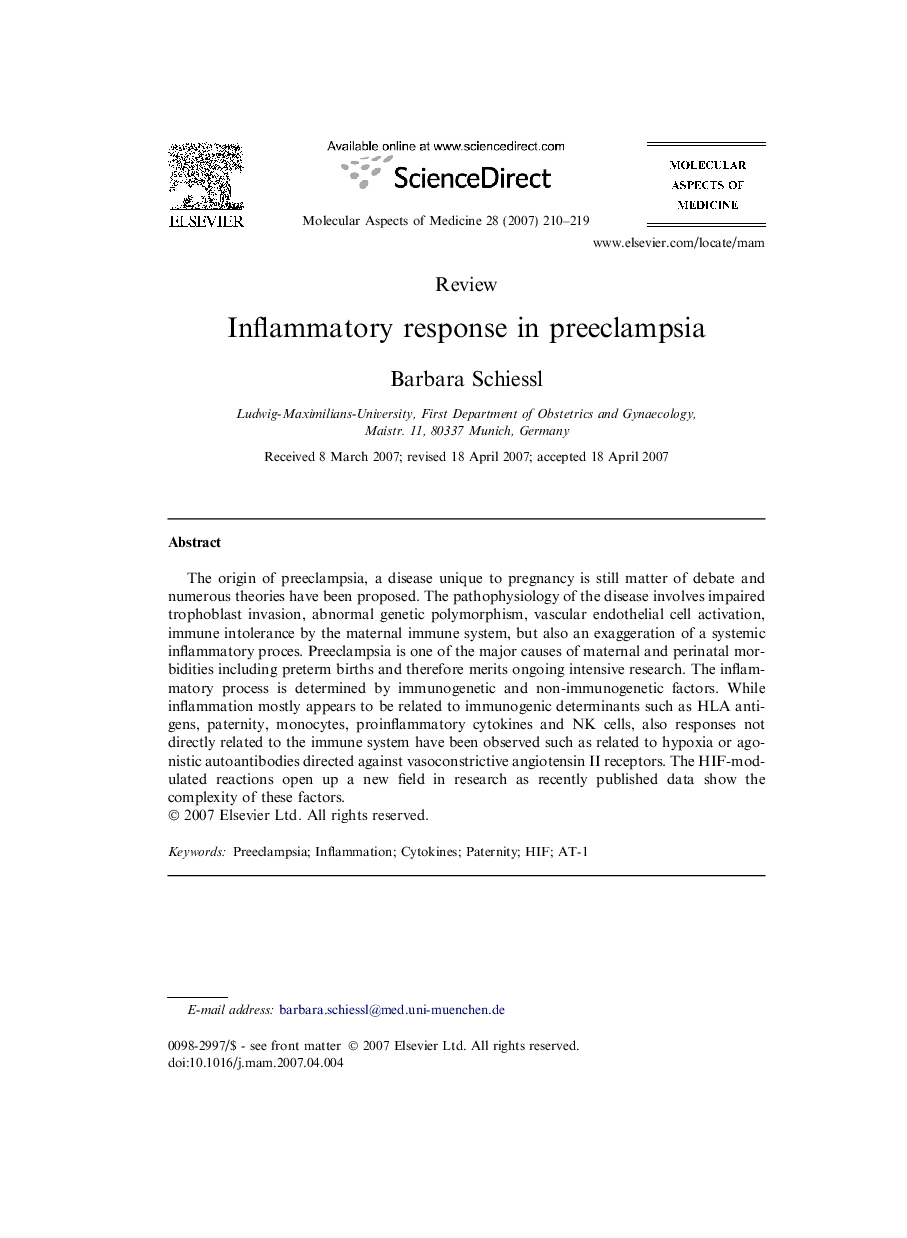| Article ID | Journal | Published Year | Pages | File Type |
|---|---|---|---|---|
| 1995968 | Molecular Aspects of Medicine | 2007 | 10 Pages |
The origin of preeclampsia, a disease unique to pregnancy is still matter of debate and numerous theories have been proposed. The pathophysiology of the disease involves impaired trophoblast invasion, abnormal genetic polymorphism, vascular endothelial cell activation, immune intolerance by the maternal immune system, but also an exaggeration of a systemic inflammatory proces. Preeclampsia is one of the major causes of maternal and perinatal morbidities including preterm births and therefore merits ongoing intensive research. The inflammatory process is determined by immunogenetic and non-immunogenetic factors. While inflammation mostly appears to be related to immunogenic determinants such as HLA antigens, paternity, monocytes, proinflammatory cytokines and NK cells, also responses not directly related to the immune system have been observed such as related to hypoxia or agonistic autoantibodies directed against vasoconstrictive angiotensin II receptors. The HIF-modulated reactions open up a new field in research as recently published data show the complexity of these factors.
